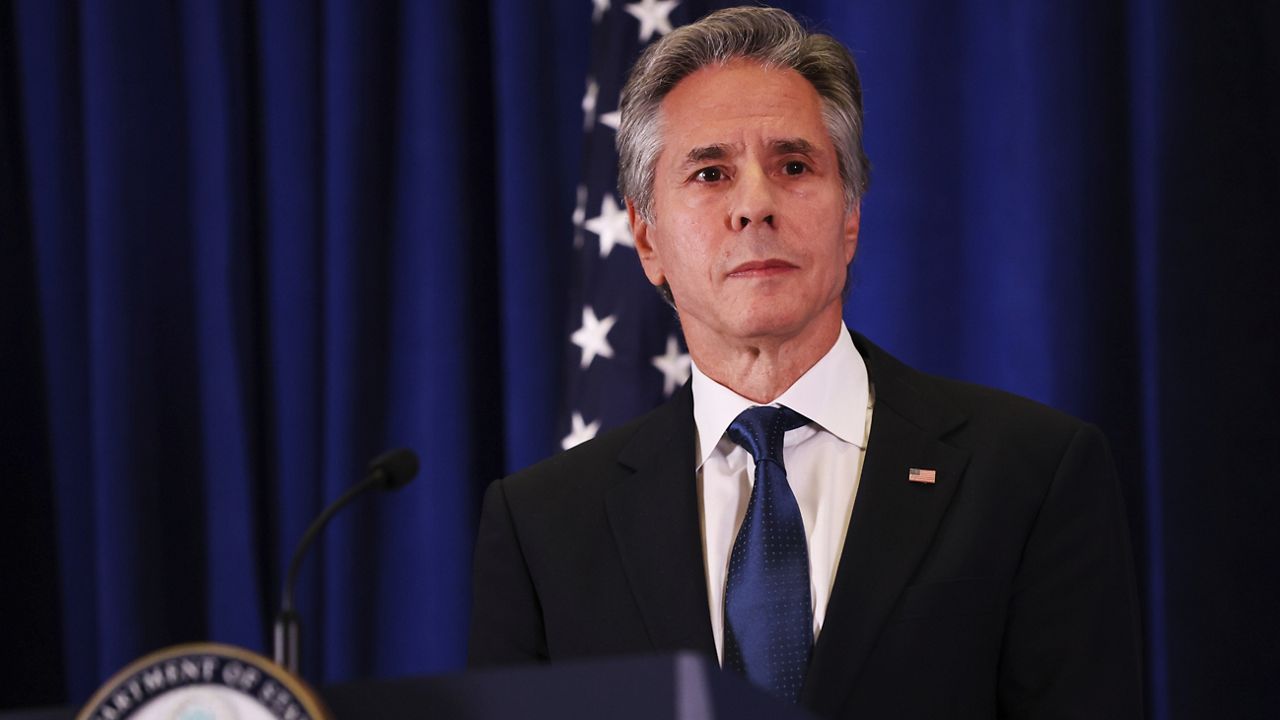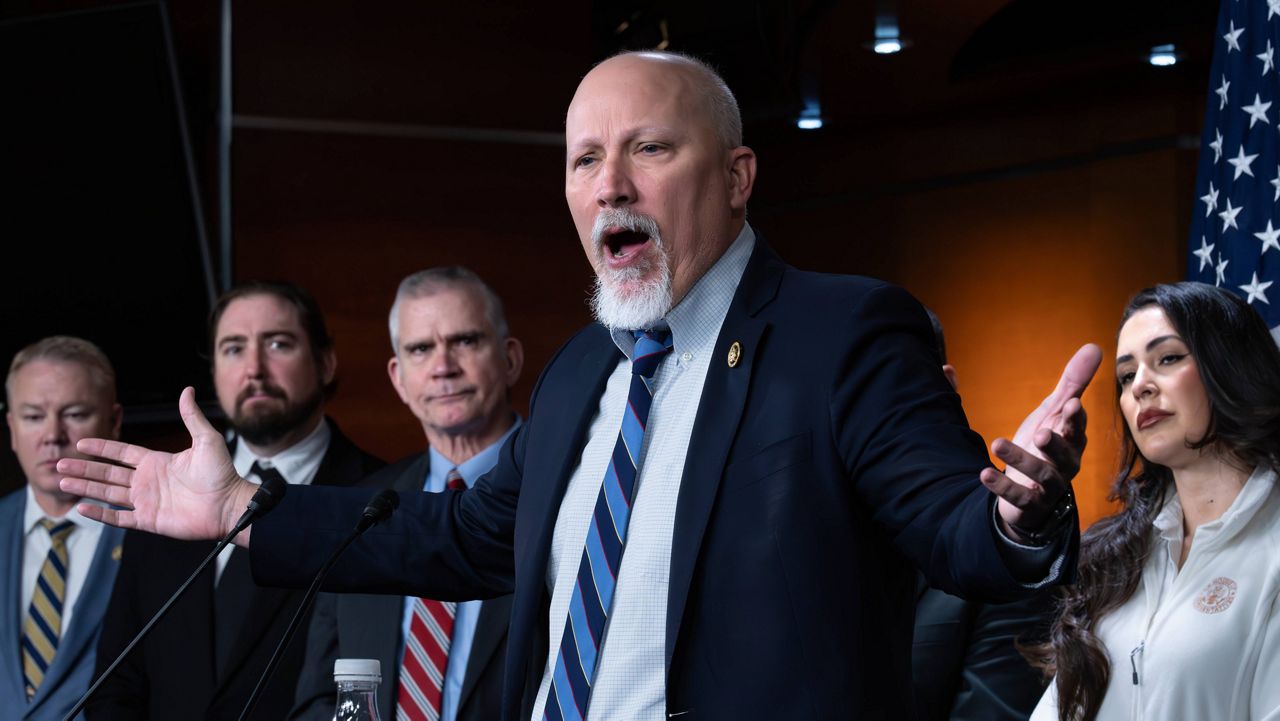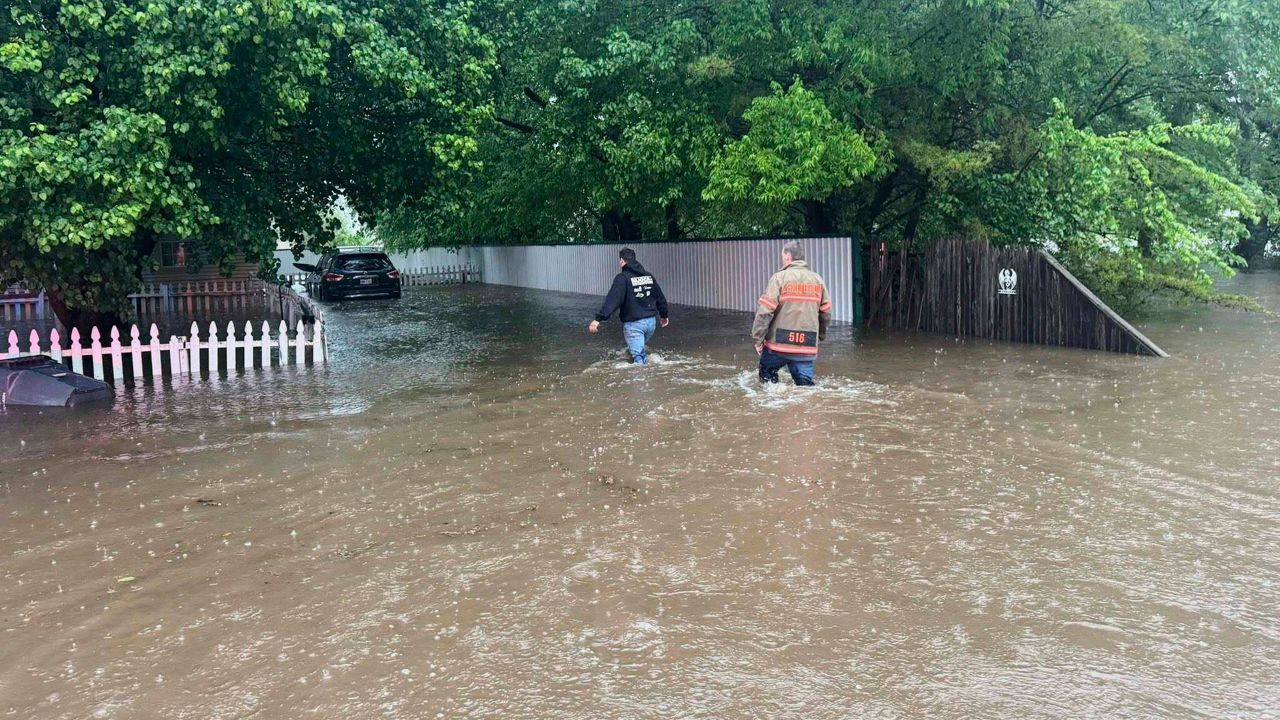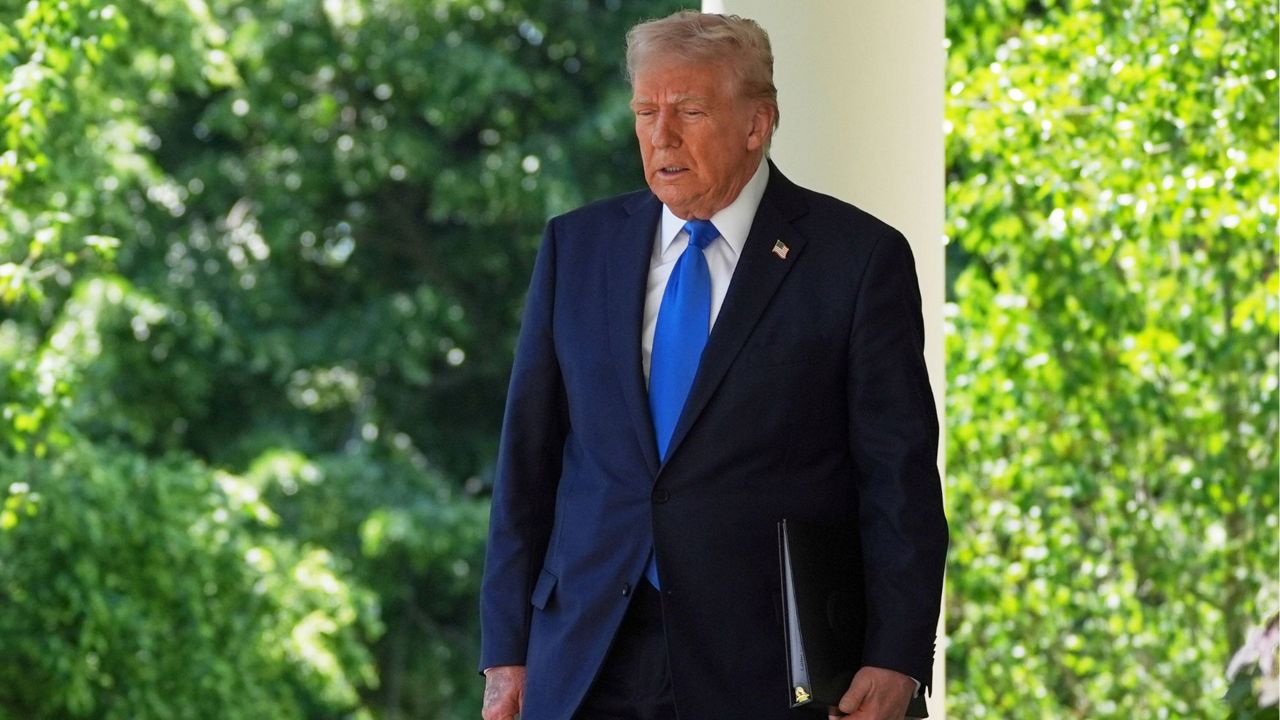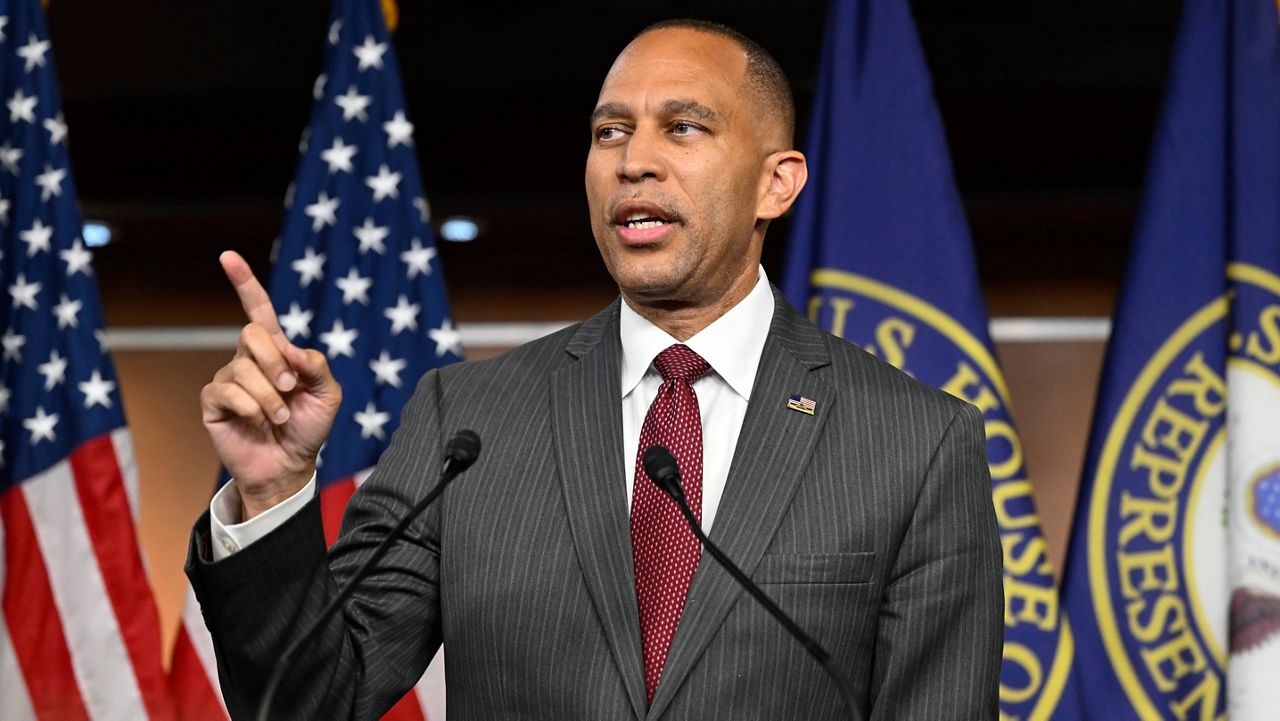Secretary of State Antony Blinken on Friday said the Middle East is in a “precarious moment,” painting the next few days as crucial to the region’s future as it faces a surge in violence between Israel and Hezbollah following an airstrike that killed Hezbollah leader Hassan Nasrallah.
“The events of the past week and the past few hours underscore what a precarious moment this is for the Middle East and for the world,” Blinken said. “The choices that all parties make in the coming days will determine which path this region is on, with profound consequences for its people now and possibly for years to come.”
Blinken’s comments – delivered at a press conference in New York that capped a week of high-level interactions with global allies at the United Nations General Assembly – came just hours after Israel said it carried out a strike on the headquarters of Hezbollah, designated a terrorist group by the U.S., in the Lebanese capital city of Beirut. Lebanese officials said the massive blast killed at least two people and injured dozens.
Asked about reports that the Israel Defense Forces was targeting Hezbollah leader Hassan Nasrallah with the strike, President Joe Biden told reporters: “The United States had no knowledge of or participation in the IDF action.”
"We're gathering information,” he added.
Blinken on Friday also deferred on the topics, telling reporters that the U.S. was still working to understand the intent.
“On the events of the last hours, we are still gathering information, making sure that we fully understand what happened, what the intent was, and until we have that information, I can't, I can't address in detail our response to it,” he said.
Indeed, Hezbollah confirmed late Friday that Nasrallah was killed in the strike.
In his first public remarks since the killing, Prime Minister Benjamin Netanyahu said Israel’s targeting of Nasrallah was “an essential condition to achieving the goals we set.” "He wasn't another terrorist. He was the terrorist," Netanyahu said
Strikes between Israel and Hezbollah drastically increased this week, killing more than 700 people in Lebanon since Monday, according to the country’s Health Ministry. The scourge in violence across the Lebanon-Israel border has heightened and brought a new sense of urgency to longstanding concerns that the nearly one-year-old war in Gaza could expand into a wider regional conflict.
Blinken on Friday said parties in the region will have to decide in the coming days diplomacy and a ceasefire or “more conflict, more violence, more suffering, and greater instability and insecurity, the ripples of which will be felt around the world.”
“The United States has made clear, along with the G7, European Union, partners in the Gulf and so many other regions, that we believe the way forward is through diplomacy, not conflict,” Blinken said, referring to the countries who signed on to the U.S.-led ceasefire proposal this week. “The path to diplomacy may seem difficult to see at this moment, but it is there, and in our judgment, it is necessary.”
The Biden administration on Wednesday released a proposal for a 21-day ceasefire across the Israel-Lebanon border, hoping a pause in fighting would provide “space for diplomacy” to work out a larger settlement that allows people on both sides of the border to return safely to their homes.
France, Australia, Canada, Germany, Italy, Japan, Saudi Arabia, United Arab Emirates, the United Kingdom, Qatar and the European Union all signed on to the plan calling for a temporary ceasefire.
A statement from Israeli Prime Minister Benjamin Netanyahu’s office overnight appeared to attempt to walk back his initial response, which cast doubt on his country’s knowledge and support of the proposal.
“Due to a lot of misreporting around the U.S.-led ceasefire initiative, it is important to clarify a few points,” the new statement overnight on Friday read. “Earlier this week, the U.S. shared with Israel its intention to put forward, together with other international and regional partners, a ceasefire proposal in Lebanon.”
“Israel shares the aim of the U.S.-led initiative of enabling people along our northern border to return safely and securely to their homes,” the statement continued.
The strike in Beirut on Friday came hours after that statement was posted. Addressing the United Nations General Assembly on Friday, Netanyahu did not mention the ceasefire proposal in Lebanon specifically during his speech but vowed to keep battling Hezbollah if it continues to choose the “path of war.”
“As long as Hezbollah chooses the path of war, Israel has no choice, and Israel has every right to remove this threat and return our citizens to their home safely, and that's exactly what we're doing,” Netanyahu said.




